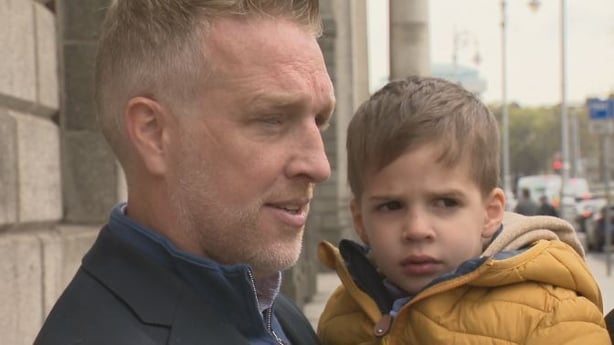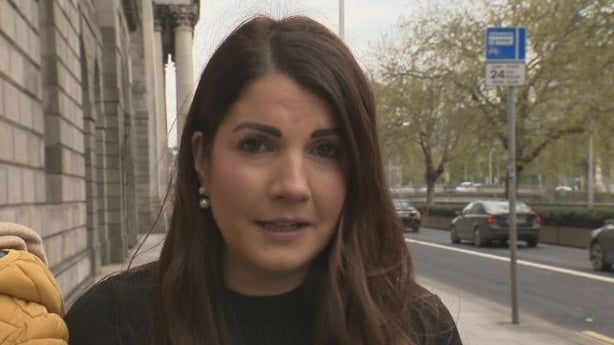The High Court has heard that a genetic mother who has taken a legal challenge over her right to be recognised as the legal parent of her son born through surrogacy is now hopeful that a path to parentage will be provided by legislation.
The case concerns the parents of a boy born through gestational surrogacy abroad who say there is an urgent need for his genetic mother to be legally recognised because his father is battling a life threatening illness.
Brian and Kathy Egan from Kilkenny took a High Court action claiming the State's failure to allow for the legal recognition of their younger son's genetic mother amounts to discrimination and a breach of his rights under the Constitution and the European Convention on Human Rights.
They said the lack of legislation means their sons are treated differently in the eyes of the law.
Today, their lawyers told the court the case could be adjourned by agreement as they had been "heartened" by a statement in the Dáil yesterday that legislation would be enacted by the summer.
The Egans were accompanied to court by their sons Luke and Harry.
Mr Justice John Jordan, who has previously sharply criticised the Government for the delay in enacting the legislation, praised the Egans for their "achievement in generating momentum and action" adding: "It is good to see Luke and Harry and I wish them well."
The judge said he hoped the family would not have to return to court and said there was "solid ground for optimism".
He also said he wished the legislators well in what was a very complex area.
Read more: Surrogacy law should be enacted by summer - Donnelly
The Egan's case had been adjourned late last year after it emerged that significant progress had been made in the preparation of legislation to deal with the issues.
However, the couple returned to court a week later saying a letter from the Chief State Solicitor's Office had caused some concern.
We need your consent to load this rte-player contentWe use rte-player to manage extra content that can set cookies on your device and collect data about your activity. Please review their details and accept them to load the content.Manage Preferences
That letter stated that retrospective recognition would not take place until the proposed Assisted Human Reproduction Regulatory Authority is "set up and fully operational" for both retrospective and prospective surrogacy arrangements.
The letter also stated that it was not possible to give a definitive timeline for this.

In December, the court was told the Egans may not have the luxury of time and might have to proceed with their High Court action.
Ms Egan said she was more confident today and was encouraged by the work that had been done.
"We are aware a lot of work has been done but also aware a huge amount of work has to be done to get this over the line," she said.
"On paper I am still not Luke's legal parent, but I do believe that day is coming very soon. For me and for hundreds of families like ours.
"We never thought we would find ourselves in this scenario, but when Brian was diagnosed with cancer it really shone a spotlight on the urgency of the need for this legislation.

"Thankfully Brian's treatment is ongoing and he is doing well, but it really did highlight the need for everything to be properly sorted in the eyes of the law so that Luke and Harry are equal in the eyes of the law.
"They are both of our sons and they will never be anything else but it needs to be reflected in legislation."
She added that they can now "see over the summit but we haven't got there yet".
Mr Egan said there would always be a nervousness until the legislation was enacted. He said surrogacy was a last choice for people and mothers deserved to be recognised.
Senator Mary Seery Kearney, who has supported the family throughout, praised the courage of the Egan family for "bringing about a situation of momentum in ensuring the political delivery of the legislation".
However, she added "we are not there yet" and said a solution was needed urgently.






